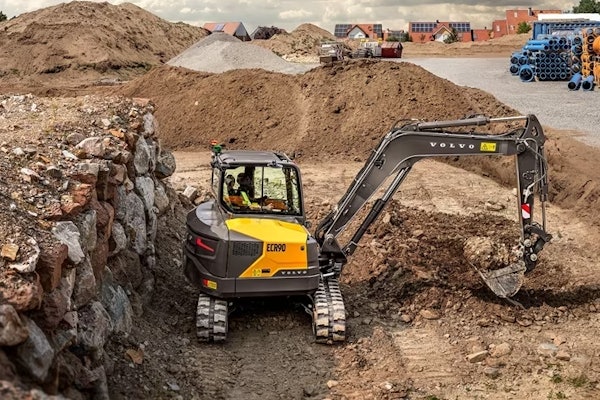
Don’t let such delays tempt you into hiring anyone and everyone who says they’ll do the work. Be deliberate and you may find employees who will stick around for more than a few days, weeks, or months.
Here are some of the qualities you should look for in your future employees during the hiring process.
Enthusiasm
If the interviewee is looking like they’d rather be anywhere but there and seem quite reluctant to consider the concept of manual labor, you can go ahead and scratch this one off your list. If the individual is engaged, making eye contact, and genuinely seems excited at the prospect of lawn maintenance, they’re probably not faking.
The enthusiasm can keep the employee driven, and hopefully loyal to working with your company and watching it grow.
Expertise
Sure, anyone can mow a lawn, but if your company does more than just maintenance, it’s probably a good idea to find someone with some experience already. If you’re thinking “all the guys with experience are already taken,” don’t forget that you can cultivate the hands-on experience for your employees. There are plenty of students majoring in turfgrass science, horticulture, and landscape architecture. Take their background knowledge and build from there.
Be sure to let the employee know what that expertise is worth to you. If you’re paying them the same amount they could get working at McDonald’s, they won’t feel very appreciated and may go looking for greener pastures.
“The landscape business seems to be riddled with people trying to find cheap labor,” Jeff Ascough, founder of Shore Green Landscape & Design, told LawnStarter. “Pay your guys well. They work hard and are the face of your business. Well-paid employees are more likely to show up and do the right thing.”
Communication
Speaking of your business face, one of the most important soft skills your potential hire needs to have is being a good communicator. More often than not, your customers will see and interact with your employee, not you. If they have questions or concerns, these will be directed at your employee, who needs to have the knowledge, diplomacy and speaking skills to respond properly.
“It is very important to be professional and dependable,” Ascough says. “Although landscaping is blue collar, customers expect a white-collar experience.”
By being kind and courteous, your employee can even help sell other services to your clients while they are discussing a landscaping issue. If your potential hire is a little rough around the edges, but checks all the other boxes, spend some time coaching him through how to respond to potential encounters.
Self-managing
Sometimes you can’t be around to oversee everything and neither can your crew managers. You need an employee who can pick up the slack and deduce what needs to get done and how they can help accomplish that.
In determining whether the interviewee has strong self-management skills, or is capable of developing them, you’ll have to ask questions. Asking the person to describe a goal that they set for themselves and how they achieved it can show their method of how they get things done. Also, you might want to ask how they manage their time in stressful situations.
Reliability
This can be hard to gauge during the interview process, as the person is trying to create a good impression, but one way to determine this trait is possibly scheduling several interviews instead of just one. It will test the willingness of the applicant along with their interest in the job. If they repeatedly show up 5 minutes early, it’s more likely that’s how they treat every facet of their life.
Check references as well. Previous employers can attest to whether something is “honeymoon” behavior or not. Ask them to tell you about a time their workday ended before they finished their task, and get them to talk about a time they knew their way was right but still followed instructions.










